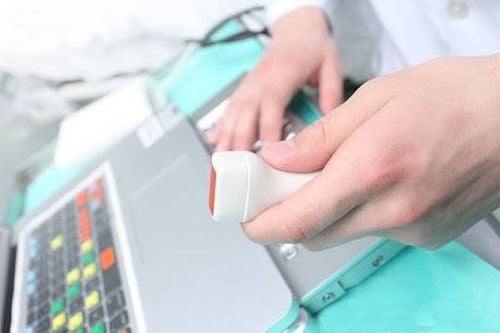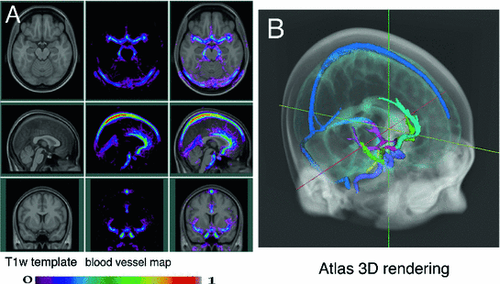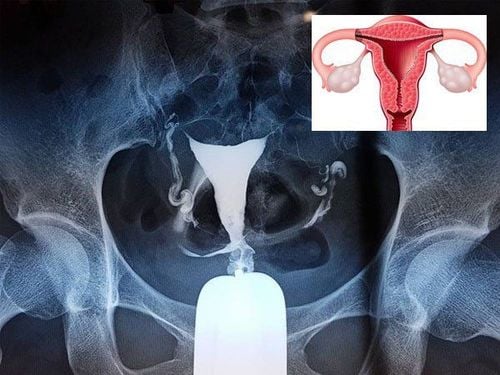This is an automatically translated article.
The article is professionally consulted by Dr. Pham Quoc Thanh - Radiologist - Radiology Department - Vinmec Hai Phong International General HospitalAnd Master, Doctor Tong Diu Huong - Radiologist - Department of Diagnostic Imaging - Vinmec Nha Trang International General Hospital.
Fetal MRI is a way to get very detailed images to help doctors diagnose fetal abnormalities before the baby is born. In general, compared with ultrasound, this subclinical method is less popular, however, its value is extremely great, especially in the case of high-risk pregnancies, pregnant women with suspicious factors. suspected fetal malformation.
1. What is a fetal MRI?
Magnetic resonance imaging (MRI) is a means of providing detailed images of the inside of the body. From there, the doctor can detect abnormal structures of the organs and give appropriate treatment.
For obstetrics, fetal MRI will provide more information about the baby, in addition to the ultrasound tool, especially in high-risk pregnancies.
During an MRI scan, images are taken from many different angles and the computer processes these images to give a detailed picture of the specific part of the baby in the uterus that needs to be examined. Unlike ultrasound, which uses sound waves, and X-rays, which use radiation, the form of energy used in MRI is a strong magnetic field and radio waves to obtain detailed images and reduce the risk of harm. radiation exposure.
Indications for fetal MRI are usually performed in the second trimester (second trimester of pregnancy). Prior to this, fetal MRI was not performed during the first trimester of pregnancy, because the accuracy of the received diagnosis would be much less than when performed at this point.

2. When is the pregnancy MRI indicated?
Fetal MRI will be indicated when:
An abnormality is detected in the fetus, especially when fetal malformation is suspected, when the ultrasound cannot clearly identify it. At the same time, seeking more information is necessary to make decisions about therapy, to maintain or to terminate a pregnancy, or to advise families about the postpartum prognosis. Indications for fetal MRI are often in the setting of severe obesity that interferes with ultrasound, polyhydramnios, oligohydramnios, or advanced maternal age. Detecting an abnormality in the fetus, especially when a fetal malformation is suspected, when the ultrasound cannot clearly identify it and the doctor needs to make a decision about the intervention plan for the newborn as soon as it is born, for example. For example: congenital diaphragmatic hernia, congenital heart disease. In high-risk pregnancies, there are many factors that influence prognosis even if not detected by ultrasound, eg twin-to-twin transfusion syndrome.
3. How to conduct fetal MRI?
To conduct fetal MRI, pregnant women need to prepare and follow the following instructions:
Wear loose, comfortable and metal-free clothes; Remove all jewelry and metal items before entering the MRI room: watches, pens, keys, hairpins, tape pins, cell phones, credit cards, pagers ; Do not drink caffeinated beverages such as: coffee, tea, cola drinks or carbonated drinks on the day of fetal MRI; Carry out a questionnaire on medical history, especially having had interventions or surgery to place metal instruments in the body; Lie on your back in the correct position on the conveyor belt brought into the MRI chamber. If this position is difficult to do, the woman can lie on her side; You can talk to the technicians performing the MRI at any time during the scan. Occasionally, a woman may be asked to hold her breath for a short time and on command; Pregnant women can wear headphones to avoid noise when the machine is operating; Some women may feel their body warm up during the scan and this is normal; For some cases of anxiety and stress, the mother will be given a mild sedative. This is completely harmless to the fetus, both relaxing for the mother and reducing fetal movement in the uterine cavity, improving the quality of the collected images.

4. What is the impact of MRI on the safety of the fetus?
MRI is a useful complementary imaging tool to ultrasound to evaluate fetal and placental abnormalities. This is even a subclinical option to help diagnose abnormalities in pregnant women that may arise during pregnancy.
This is thanks to the advantages that MRI offers, including high spatial resolution and excellent soft tissue contrast while remaining non-invasive and neutralizing ionizing radiation. . The numerous studies that have evaluated long-term outcomes have also demonstrated the absence of abnormalities in function and birth weight for infants exposed to MR imaging of the uterus and during later development.
In case it is necessary to inject contrast agent to make the image easier to identify, the use of intravenous Gadolinium contrast agent in the indication for fetal MRI is completely contraindicated. Although the number of women requiring gadolinium-enhanced MRI in the first trimester is quite common, there are almost no reports of babies being born with birth defects or related problems. considered a side effect of the drug.
In summary, in cases of suspected fetal malformations that are limited by ultrasound images, an indication of fetal MRI is extremely necessary. This tool helps determine the diagnosis of congenital abnormalities, thereby helping doctors predict the condition of the fetus right before birth, and support counseling for mothers and families. With the evidence about the benefits of fetal MRI, pregnant women need certain knowledge above, to help take care of a healthy pregnancy.
The MRI system of Vinmec International General Hospital is a unit that has a 3.0 Tesla magnetic resonance imaging machine system with modern Silent technology that can quickly capture and accurately assess the status of injury while the fetus is continuously change posture. This is also a camera that does not affect the health of mothers and fetuses.
On average, the scan time is about 30-45 minutes and the patient will receive the MRI results after 15-30 minutes. The examination process is always performed by a team of qualified doctors with many years of experience. However, when taking an MRI, pregnant women need to schedule an appointment before the examination.
Currently, Vinmec International General Hospital has a package maternity service as a solution to help pregnant women feel secure because of the companionship of the medical team throughout the pregnancy. When choosing Maternity Package, pregnant women can:
The pregnancy process is monitored by a team of highly qualified doctors Regular check-ups, early detection of abnormalities The package pregnancy helps to facilitate convenient for the birthing process Newborns get comprehensive care
Please dial HOTLINE for more information or register for an appointment HERE. Download MyVinmec app to make appointments faster and to manage your bookings easily.
References: pedrad.org, insideradiology.com.au, fetus.ucsf.edu













